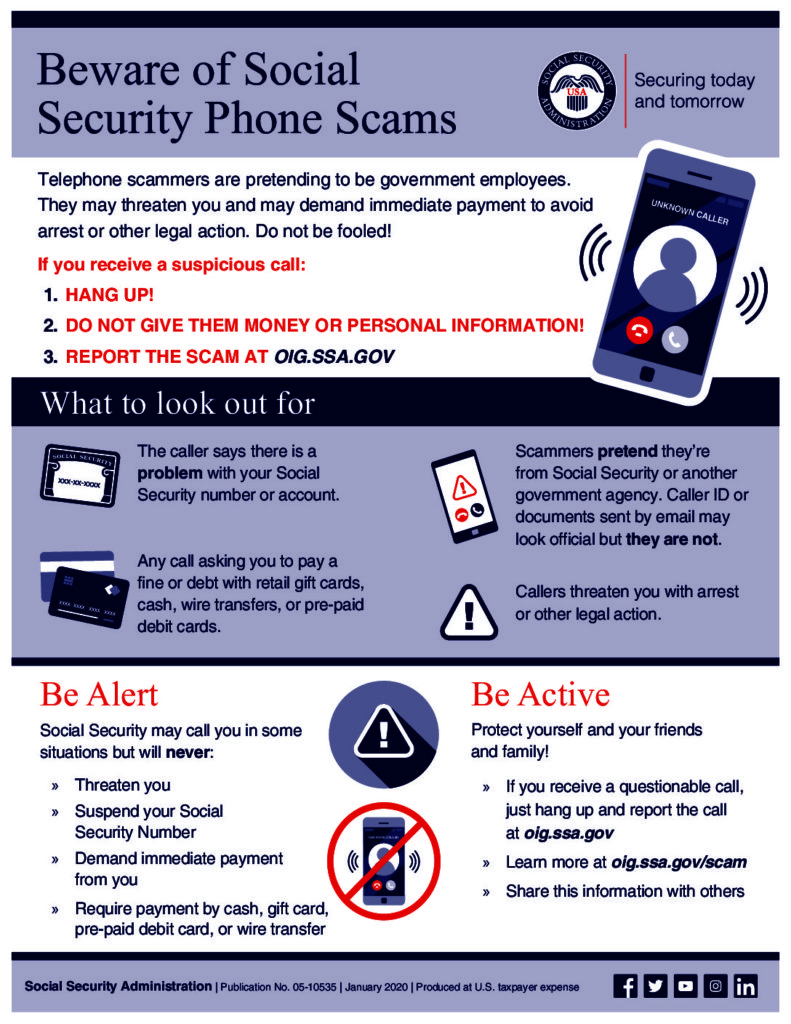Help SSA Help Your Clients
The Social Security Administration is alarmed by the volume and success of scam calls, and we are determined to do what we can to protect Americans. Public awareness is key. We are working to educate people how to recognize a scam call, end the call, and report it to our Office of the Inspector General (OIG). We are asking advocates to help get the word out. We are providing an educational article with information for you to share with your clients as well as providing this fact sheet to help your staff handle client inquiries about these scams. We welcome any other ideas you have to help us protect Americans from these scammers.
Overall Message
Scammers play on emotion—generally fear—to get people to act without thinking. If a caller states there is a problem with a person’s Social Security Number or account:
- HANG UP!
- DO NOT provide the caller with money — cash, gift card, wire transfers, or pre-paid debit cards — or personal information.
- REPORT IT at oig.ssa.gov
What SSA Is Doing to Help
We have taken a number of actions to date. We:
- Collaborated with major phone carriers to block many calls that attempt to spoof our tollfree phone numbers from ever reaching the public;
- Created an online reporting form for the public to report suspicious calls to OIG;
- Distributed television and radio public service announcements throughout the country, issued a national press release, and posted to social media to warn the public;
- Collaborated with OIG to display a video in 2,100 Walmart stores nationwide;
- Updated our 1-800 and field office number messages with information about the scams;
- Collaborated with the Consumer Financial Protection Bureau to help educate consumers how to avoid Social Security scams; and
- Shared articles and guidance with Centers for Medicare and Medicaid Services, the National Association of States United for Aging and Disabilities, and the Senior Corps, as well as Social Security advocates, third-party groups and organizations.
- Provided all Members of Congress with similar package to share with their constituents.
We are not done yet. We will:
- Continue to support the online reporting form so OIG can analyze scam trends and work to terminate service for scammers’ originating and call-back numbers;
- Produce new television and radio public service announcements, and explore radio campaigns on nationally syndicated talk shows and television appearances on highly watched morning show programs; and,
- Expand our work with external groups and agencies—AARP and other organizations representing seniors, representative payee organizations, motor vehicle administrations, the United States Postal Service, the Department of Veterans Affairs, and others.

